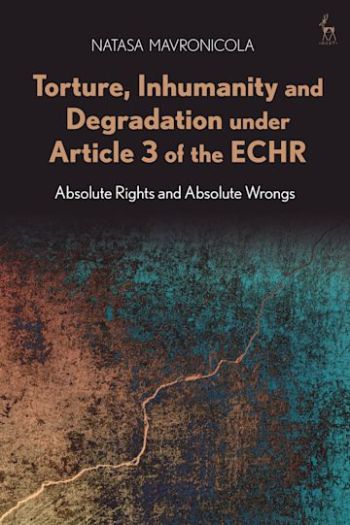
Winner of the 2022 SLS Peter Birks Prize for Outstanding Legal Scholarship
This book theorises and concretises the idea of 'absolute rights' in human rights law with a focus on Article 3 of the European Convention on Human Rights (ECHR). It unpacks how we might understand what an 'absolute right' in human rights law is and draws out how such a right's delimitation may remain faithful to its absolute character. From these starting points, it considers how, as a matter of principle, the right not to be subjected to torture or inhuman or degrading treatment or punishment enshrined in Article 3 ECHR is, and ought, to be substantively delimited by the European Court of Human Rights (ECtHR). Focusing on the wrongs at issue, this analysis touches both on the core of the right and on what some might consider to lie at the right's 'fringes': from the aggravated wrong of torture to the severity assessment delineating inhumanity and degradation; the justified use of force and its implications for absoluteness; the delimitation of positive obligations to protect from ill-treatment; and the duty not to expel persons to places where they face a real risk of torture, inhumanity or degradation.
Few legal standards carry the simultaneous significance and contestation surrounding this right. This book seeks to contribute fruitfully to efforts to counter a proliferation of attempts to dispute, circumvent or dilute the absolute character of the right not to be subjected to torture or inhuman or degrading treatment or punishment, and to offer the groundwork for transparently and coherently (re)interpreting the right's contours in line with its absolute character.